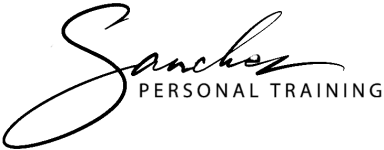Personal Training Q&A
Introduction:
Welcome to our Q&A page, where we answer some of the common fitness questions, we receive on a day-to-day basis:
Q: How often should I work out?
A: Everyone is different, and it depends on what you want to achieve. In an ideal world, I would be recommending 2-5 workouts per week, but reality is different, and your workout schedule needs to consider your individual goals, fitness level, availability, and finances. I will help you to develop a schedule that suits you and will always try and help my clients, even on non-personal training days.
Q: Why work with a personal trainer?
A: My clients come to me with varied reasons for working with a professional – it may be that they need custom workouts to work with or around a particular condition, some expert guidance on how to move their body and use machinery, additional motivation, or accountability.
I passionately believe in the benefits of working with a personal trainer and I can help you achieve your fitness goals safely and effectively.
Q: Why work with me instead of another professional?
A: I offer tailored exercises, injury prevention, and my expert guidance to enhance your mobility and function. Especially if you are currently in pain with no structural issues.
My aim is to give you all the tools you need to succeed without me. Whether that is getting you confident enough to exercise on your own, using techniques that are suited to your body, or whether that is using exercise and movement to help you resolve your condition.
Some clients will always want to collaborate with a personal trainer, and I’m here for them too.
Q: How qualified are you?
A: All my qualifications are CIMSPA certificated:
• Level 3 Personal Trainer.
• Level 3 Strength & Conditioning for Sport.
• Level 3 Exercise Referral
• Level 4 Lower Back Pain Management
• Functional Neuromuscular Assessment
• Level 2 Fitness Instructing.
• Self-Myofascial Release CPD.
Q: Why are you more expensive than normal Personal Trainers?
A: I offer a more specialised service, working with conditions that often keep people away from exercise and the gym. This requires more training and qualifications on my part, and time spent keeping up to date with the latest research. My prices reflect this, but as a result I offer more knowledge and experience than most personal trainers.
Q: How can you prevent injuries during rehab training?
A: I always prioritize proper form, listening to the body, and confidence in my knowledge as we progress gradually in intensity together. I will never make a client do anything they do not feel comfortable doing or believe will harm them.
Q: How can you prevent workout plateaus?
A: Workout plateaus happen when the body becomes adjusted to a set of exercises at a regular intensity, or it is not getting the nutrition it needs to progress.
With me, we will regularly change routines, as often as every four weeks if necessary, changing the exercises and gradually increasing intensity so that you don’t get bored, and your body stays alert.
I can also work with you on nutrition, looking at any dietary requirements you may have and making sure that you are getting the right foods necessary for health and growth.
Q: What should you eat before and after workouts?
A: For pre-workout, I suggest consuming a balanced meal 1-2 hours prior, including protein, healthy fats, and whole grains.
After the workout, aim for protein and carbs within 30 minutes for optimal recovery.
Personal Training Q&A provides quick insights into rehabilitation and functional fitness. For personalised support and a tailored training plan, please contact me using the Contact Us page.
We need your consent to load the translations
We use a third-party service to translate the website content that may collect data about your activity. Please review the details in the privacy policy and accept the service to view the translations.

